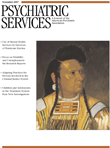Medicaid spending on enrollees with diabetes in 2003: More than one in seven Americans with diabetes rely on Medicaid for their health coverage. An issue brief from the Kaiser Commission on Medicaid and the uninsured provides a first look at what Medicaid spends on the nearly two million enrollees with diabetes. Included among the findings is that the 6% of enrollees with diabetes accounted for 16% of total Medicaid spending in 2003. Just under a third of these enrollees were also diagnosed as having a mental illness. Per capita spending for this group ($26,710) was nearly twice as high as spending for enrollees with diabetes without mental illness ($12,708). Total spending for the group with mental illness ($15 billion) accounted for almost half of expenditures for the larger group with diabetes. The ten-page issue brief is available on the Kaiser Web site at www.kff.org/medicaid.
New center on mental health research for Asian Americans: The National Institute of Mental Health (NIMH) has funded a project to establish a national center to study mental health issues affecting Asian Americans. The Asian American Center on Disparities Research will be housed at the University of California (UC), Davis, and will coordinate a network of U.S. researchers studying the unique mental health challenges faced by Asian Americans, including Chinese, Filipino, Vietnamese, Cambodian, Hmong, Lao, Korean, Japanese, Hawaiian, East Indian, and other Asian Pacific groups. The Asian-American community has been underrepresented in mental health research, and evidence suggests that services are inadequate or inappropriate for Asian Americans. The new center, led by Nolan Zane, Ph.D., of UC Davis, aims to counteract these obstacles by testing effective clinical treatments for Asian Americans, promoting and conducting research about cultural diversity and disparities, and helping bridge the gap between research and practice. The new center builds on the UC Davis-based National Research Center on Asian American Mental Health, which operated from 1988 to 2002 and also was funded by NIMH.
National voluntary consensus standards for treatment of substance use conditions: The National Quality Forum (NQF), with the support of the Robert Wood Johnson Foundation, has issued a set of standards for treating substance use disorders. The standards, which are the result of a project begun at a 2004 workshop conducted by NQF, were arrived at according to a consensus development process. The endorsed practices and their specifications have legal status as national voluntary consensus standards for the treatment of substance use conditions. Eleven evidence-based practices were endorsed. The practices fall into four domains: identification of substance use conditions, initiation and engagement in treatment, therapeutic interventions, and continuing care management. For each endorsed practice the target outcomes are identified and additional specifications are provided for what a practice entails, for whom it is indicated, who performs it, and the settings where it is provided. An executive summary listing the practice specifications is available on the NQF Web site at www.qualityforum.org/publications/reports/sud-2007.asp.

